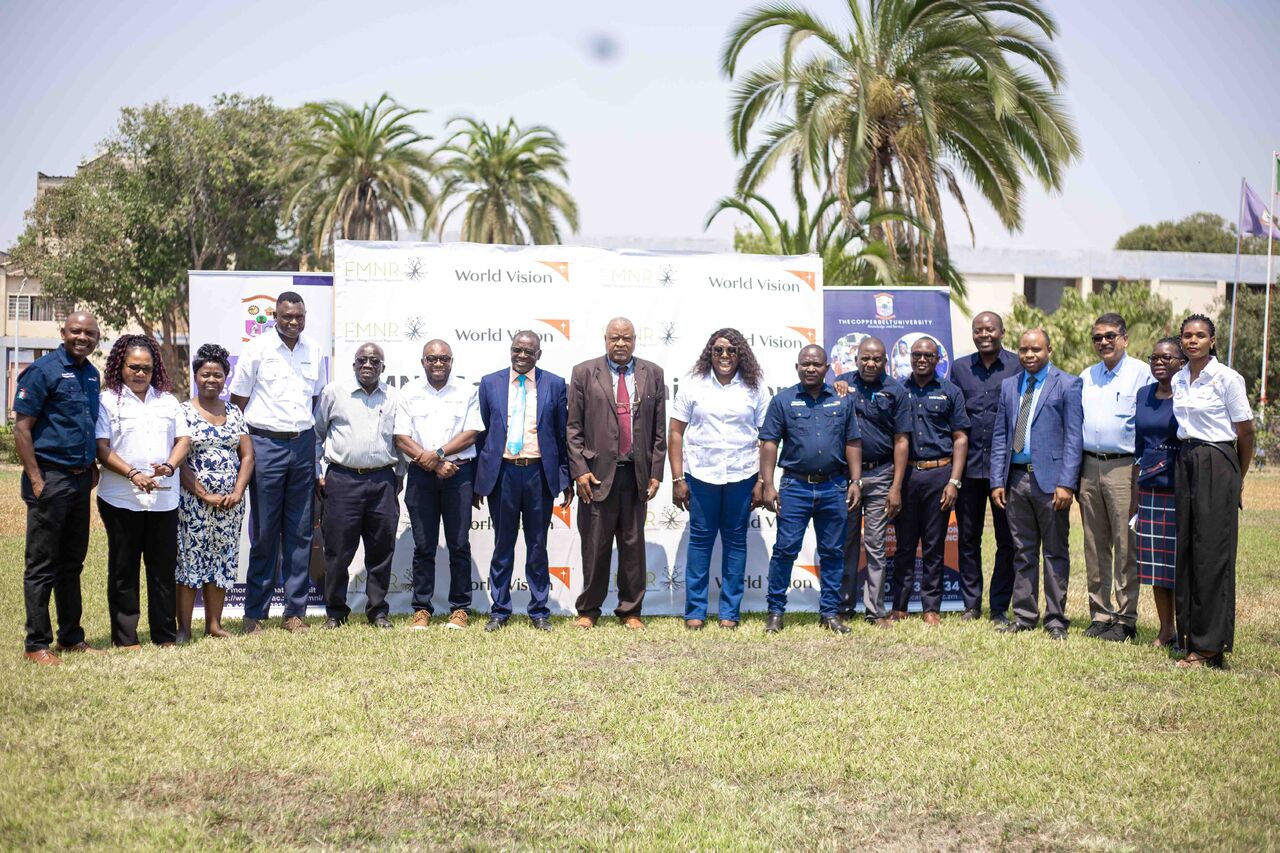World Vision Zambia and Copperbelt University Forge Partnership to Restore Degraded Landscapes through Farmer Managed Natural Regeneration (FMNR)
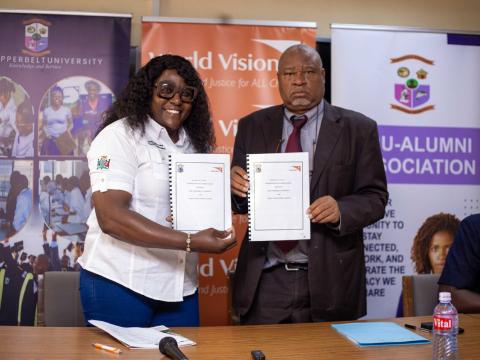
By Njavwa Simukoko, Communications, Zambia
World Vision Zambia and Copperbelt University (CBU) have taken a massive step forward in addressing the pressing issue of land degradation by formalizing a partnership through a Memorandum of Understanding (MoU). This strategic collaboration will see the two institutions work together to advance research and promote sustainable land restoration through the Farmer Managed Natural Regeneration (FMNR) model.
The MoU signing ceremony, held at the Copperbelt University in Kitwe, marked the official start of this collaboration. Both institutions are committed to combining their expertise and resources to conduct vital research, generate evidence, and facilitate the scaling up of FMNR in Zambia. This partnership will not only focus on restoring degraded landscapes but also empower vulnerable communities to build resilience against climate change.
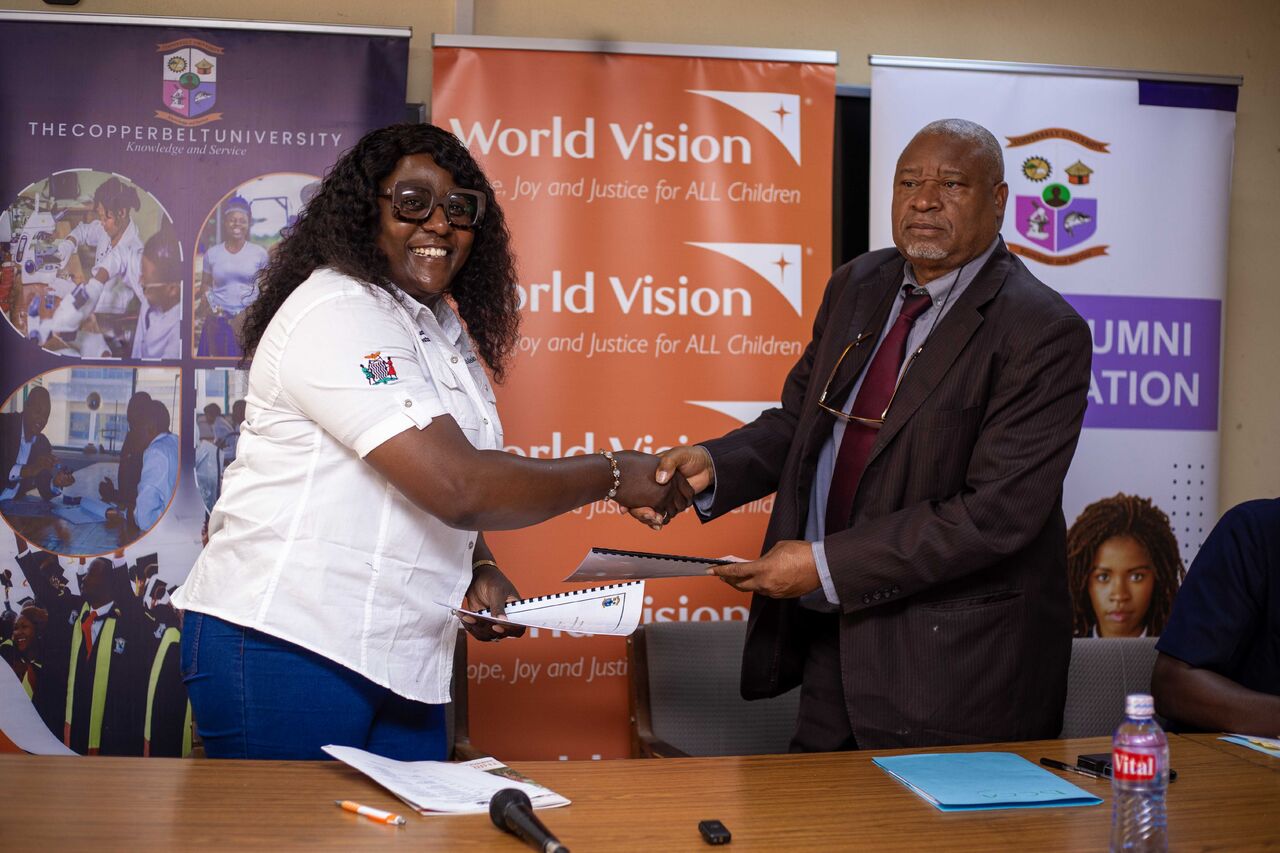
A Shared Vision for Sustainability
The Copperbelt University's Vice Chancellor, Prof. Imasiku A. Nyambe, expressed his enthusiasm for the partnership, emphasizing its alignment with the university’s mission to contribute to sustainable development.
"CBU, as a premier institution of higher learning in Zambia, is committed to contributing to national and global development through innovative, inclusive programs in teaching, research, and service. Our School of Natural Resources, which will be implementing this MoU, is dedicated to training professionals and conducting research on the sustainable use of natural resources,” he said.
Prof. Nyambe highlighted the significance of the FMNR model as a key component of World Vision Zambia's Sustainable Land Restoration (SLAR) Project, which aims to restore 150,000 hectares of degraded land. He underscored the university’s commitment to providing technical expertise and supporting capacity-building initiatives that will benefit local communities, particularly women, youth, and persons with disabilities.
FMNR: A Model for Land Restoration and Climate Resilience
The Farmer Managed Natural Regeneration (FMNR) model, pioneered by renowned Australian agronomist Tony Rinaudo, offers a low-cost, highly effective method for restoring degraded landscapes. By nurturing the growth of trees and vegetation from existing root systems, FMNR has been successfully implemented in over 24 countries, including Niger, Kenya, Uganda, and Ethiopia. The model has proven to be instrumental in improving crop yields, enhancing food security, and strengthening livelihoods for smallholder farmers.
World Vision Zambia’s Strategy, Impact, and Learning Director Ms. Ekwase Msoni, stressed the importance of building a robust evidence base around FMNR in the Zambian context.
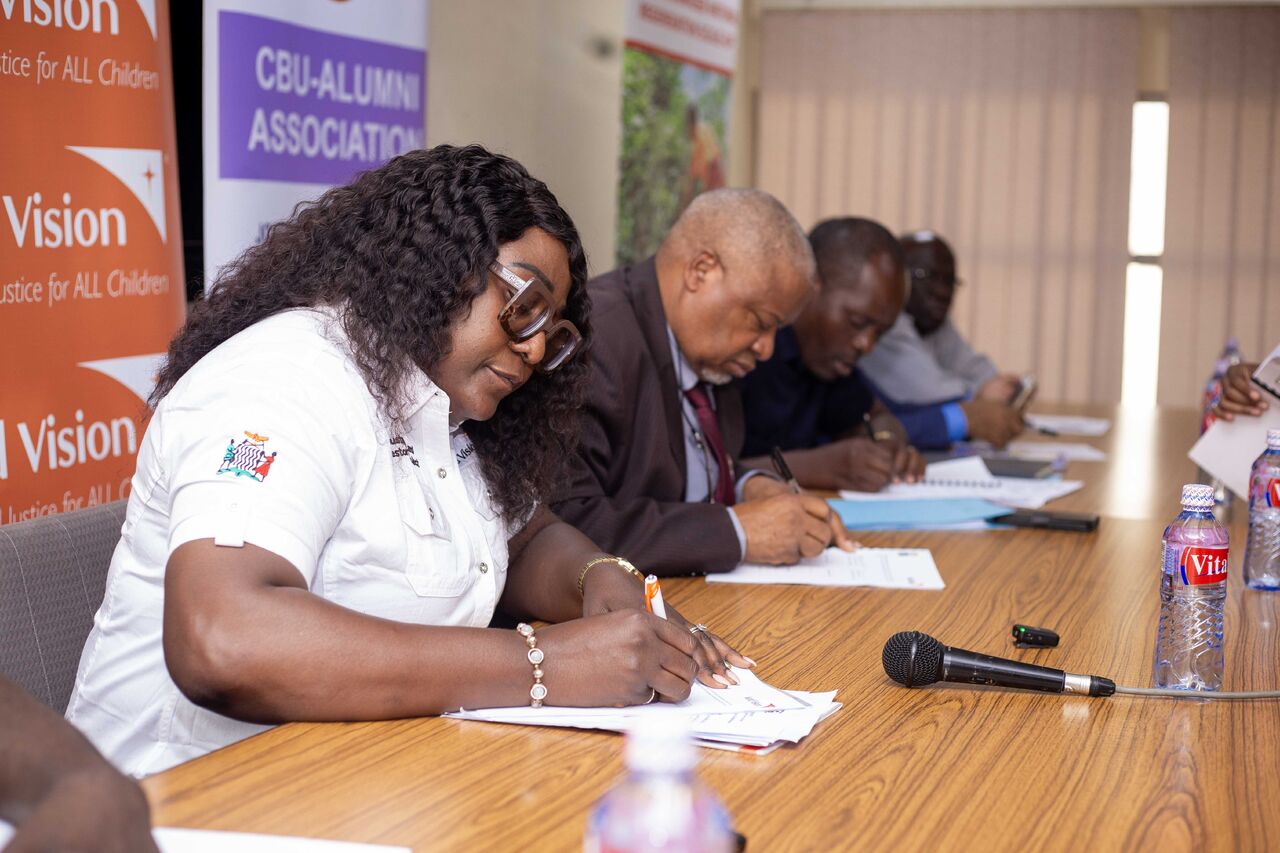
“This signing off ceremony is a great milestone and offers the two parties the opportunity to share experiences and generate evidence around FMNR research. Globally, land degradation is increasing, and the involvement of various key stakeholders in the restoration of degraded landscapes will be key in making great strides towards restoration efforts,” Ms. Msoni stated.
Addressing Climate Change and Land Degradation in Zambia
Zambia, like many other countries, is grappling with the devastating effects of climate change, including soil erosion, loss of soil fertility, destruction of ecosystems, and food insecurity. Land degradation, driven by deforestation and unsustainable land use practices, exacerbates these challenges. The partnership between WVZ and CBU aims to address these issues by promoting FMNR as a sustainable land management practice that builds community resilience.
Through this collaboration, both institutions will work to promote the widespread adoption of FMNR across Zambia. The research conducted under this partnership will inform policy and practice, helping to scale up land restoration efforts at the national level. The initiative also aligns with World Vision's global commitment to restore 1 billion hectares of land by 2030.
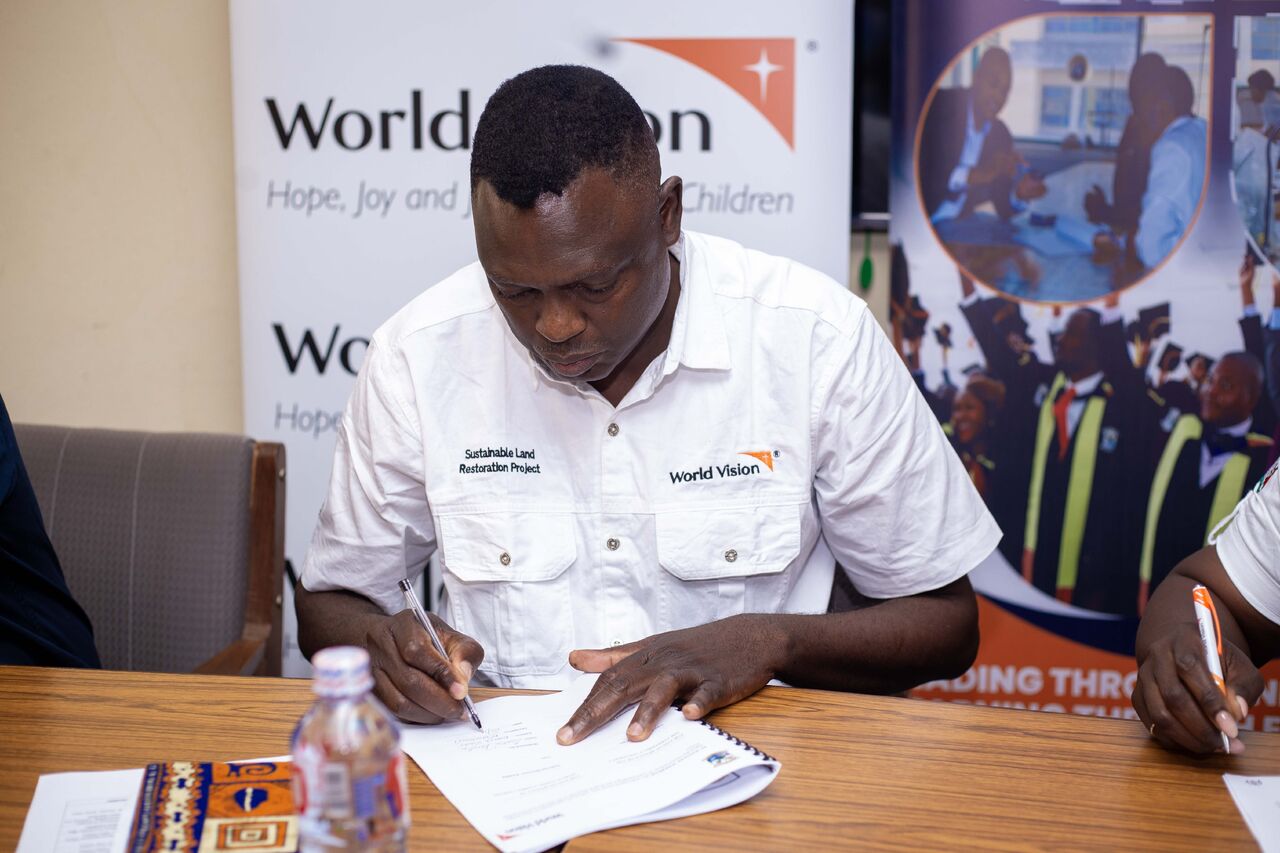
Empowering Communities and Building Resilience
The partnership is not just about restoring degraded land; it is also about empowering communities to take charge of their environments and build sustainable livelihoods.
“This collaboration is about more than just restoring landscapes. It is about building resilient communities, promoting innovation, and empowering the most vulnerable members of society,” said Prof. Nyambe.
World Vision Zambia’s dedication to promoting FMNR as part of its Sustainable Land Restoration Project will provide valuable support to communities, especially those in rural areas where the effects of land degradation are most severe. The initiative will focus on empowering smallholder farmers, women, and youth, ensuring that they are equipped with the knowledge and tools needed to manage their land sustainably and improve their food security.
A Future of Shared Success
As World Vision Zambia and Copperbelt University embark on this groundbreaking partnership, both institutions are optimistic about the future. The MoU represents the beginning of a long-term collaboration that will yield transformative results for Zambia's natural environment and its people. Through research, innovation, and community engagement, the partnership will contribute to Zambia’s efforts to combat climate change, restore degraded landscapes, and build resilient communities.
“World Vision Zambia warmly welcomes this great partnership and remains poised to support and sustain this initiative by providing the logistical support necessary to generate robust evidence and score great wins and milestones together in the climate space,” Ms. Msoni concluded during the ceremony.
This collaboration between World Vision Zambia and Copperbelt University promises to be a pivotal force in addressing one of the most pressing environmental challenges of our time, while empowering communities to build a sustainable future for generations to come.
